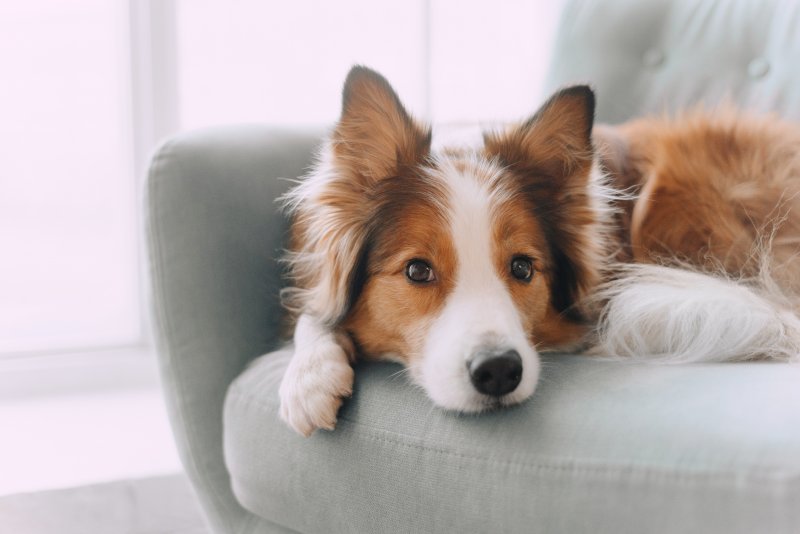Can Sleeping with a Pet in the Room Make Sleep Apnea Worse?
April 11, 2025
Pets bring joy and companionship to the lives of countless people, and many enjoy having their cat, dog, or other animal friend sleep in the same room they do. While this can be an adorable display of affection, it may make it more difficult for some people to sleep, especially if they have sleep apnea. Here’s how sleeping with a pet in the room may worsen your sleep apnea symptoms and how you can enjoy better rest.
What Is Sleep Apnea?
Sleep apnea is a common medical condition that causes patients to wake up multiple times in a single night due to restriction of the airway. This is thought to be due to the relaxing tissues in the throat weighing heavily on the windpipe during sleep, which can eventually cut off the person’s airflow and cause them to wake up distressed and out of breath. For some patients, this can happen a hundred times or more in a single night, and it can be exacerbated by factors like obesity, alcohol use, and poor cardiovascular health.
Sleep apnea can lead to a number of unpleasant symptoms such as fatigue, lethargy, overeating, sleepiness, grouchiness, and depression. In some especially unfortunate cases, it can even lead to dangerous accidents due to falling asleep while operating heavy machinery.
Does Sleeping with a Pet in the Room Worsen Sleep Apnea?
While a solid connection between sleeping in the same room as a pet and aggravated sleep apnea symptoms has not been established, some research suggests that pets may make it more difficult for some people to stay asleep. This can be especially problematic for people with sleep apnea, and it may be for reasons such as:
- Undiagnosed pet allergies that cause inflammation of the airway.
- The animal snoring loud enough to wake the sleeping human up.
- The animal occasionally waking up early and excitedly attempting to rouse the human.
How Can I Get Better Rest if I Have Sleep Apnea?
Luckily, there are a few excellent ways to reduce your sleep apnea symptoms so you can get better rest. These include:
- Taking an over-the-counter nighttime allergy pill.
- Seeing an allergy specialist.
- Teaching your pet to sleep in a different room.
- Exercising regularly to improve your circulation and airflow.
- Sleeping with your head and torso propped up with cushions or pillows, as this can reduce how much your throat tissues press down on your windpipe during slumber.
- Seeing your dentist to discuss your candidacy for an oral appliance or Vivos treatment.
Don’t let sleep apnea prevent you from getting the slumber you need for productive and enjoyable days. Consulting with your sleep dentist can help you discover the best way to consistently get excellent rest.
About the Author
Dr. Byron L. Reintjes earned his dental degree at the Case Western Reserve University School of Dentistry and completed a one-year hospital-based dental residency emphasizing trauma care. He is a member of the American Board of Craniofacial Dental Sleep Medicine and has undergone advanced training in orthodontics and Invisalign. His Fresno office offers general, restorative, cosmetic, and emergency dentistry as well as sleep apnea treatments. If you are concerned about sleep apnea, contact his office online or dial (559) 438-6684.
No Comments
No comments yet.
RSS feed for comments on this post.
Sorry, the comment form is closed at this time.


